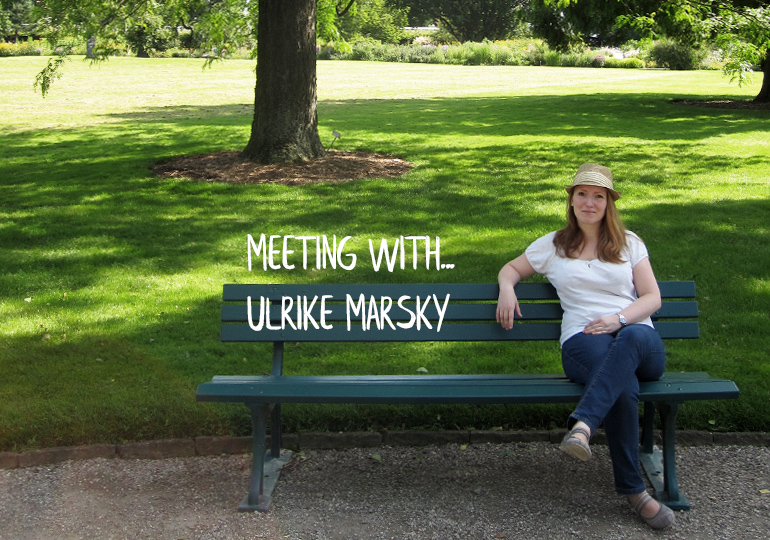 Véto-pharma
Véto-pharma The best of both worlds
As a student and a young professional, Ulrike showed a dual interest in biology and communicating. After earning her Bachelor’s degree in Biology and English at the University of Hannover in 2007, Ulrike moved to Bielefeld University to work on her Master’s degree in Behavioral Biology. That’s where she was first stung by the beekeeping bug. “While working on my thesis in 2009, I became involved in a research project about risk sensitivity in honey bees,” Ulrike says. “I found the work fascinating because bees are what we call a super-organism—a single bee colony that is comparable to a single living organism.” After earning her Doctorate in Evolutionary Biology and Entomology in 2013, Ulrike started working at the Helmholtz Centre for Infection Research in Braunschweig. There, her work focused on various editorial and communication duties, but she quickly realized that she missed also having direct involvement in biology and research. So, in 2014, she took a job working in the European office of NOD Apiary Products. “It was then that I met some of the Véto-pharma team,” Ulrike explains. “I knew the Véto-pharma team was highly energetic and motivated, and I got along well with them. I had a very good impression of the Company and its people, so in April 2017, I had the chance to become Véto-pharma’s Technical Manager in Europe, and I jumped at it.”

Today, Ulrike’s work as a Technical Manager focuses on planning and coordinating field trials; working on technical market development projects; advising and training staff, distribution partners, and customers about the use of Véto-pharma products; and working with the Company’s sales and marketing teams on sales support and marketing materials. “What’s exciting about this position is that I don’t really have a typical day. Part of my day is dedicated to customer information. Whether a beekeeper needs guidance on how to use a product, or whether one of our distributors has a specific technical question, they know that they can call me. I’m the one that knows the products inside out!” Ulrike says. The work of a technical manager requires constant adaptation to different people and scenarios, as Véto-pharma has distribution partners all over the world: from North America to New Zealand including Japan and a strong customer base in Europe.
Keeping in touch with the honeybee research community is also part of Ulrike’s mission. For Véto-pharma’s product launches, it means conducting technical trials together with beekeepers and renowned research institutions. “. When we launch a product, field trials are an excellent opportunity to show how and how well the product works. We also conduct trials based on customer feedback we receive, or to improve our communication on user instructions”. As a Technical Manager, Ulrike makes sure that information about apiary products is available to all of Véto-pharma’s customers all over the world.
“Product training, conferences, exhibitions, I enjoy travelling and meeting beekeepers and researchers around the world! As part of Véto-pharma’s research program, I recently gave an important speech at Apimondia, the leading beekeeping conference, on the topic of potential amitraz resistance, a major topic in current apicultural research “, Ulrike explains. Visiting distributors and beekeepers around the globe gives Ulrike a useful insight on beekeeping practices on all continents. “Beekeeping is practiced in different ways in virtually every market Véto-pharma serves. We have very different customer needs and wants in each market we serve and that requires us to closely monitor our markets so we can continue to provide the products our customers need to succeed, regardless of where they are in the world.”
For example, there are major differences between American and European beekeeping cultures. ‘Standardization’ would be a good word to sum up the American beekeeping culture. Bees are kept mainly in one of two different hive types in the US, whereas Germany has a large variety of hive types with different frame sizes in use. “The United States beekeeping culture is largely dominated by commercial beekeeping. Europe is much more diverse in that regard. While southern Europe tends to focus as well on commercial beekeeping, demographics in countries like Germany show that beekeepers are 98% hobbyists. European beekeepers – commercial beekeepers and hobbyists alike – tend to focus mainly on honey production. In North America, pollination services provided by bees to agricultural practices are also monetized by beekeepers and are an industry on its own.” She explains. “Of course, the number of hives doesn’t say anything about the competence. Some of the most renowned speakers at large American conferences are hobbyists, but definitely no amateurs!”
Outside of her Véto-pharma duties, Ulrike enjoys spending time with her family in the outdoor and at nature parks, and she is particularly fond of hiking, yoga and baking. She harbors an interest in international travel, as well, but with two young children at home, travelling for pleasure has been put on hold for a while. Dreams of beekeeping, however, continue to tempt her.
Join the Véto-pharma community and receive our quarterly newsletter as well as our occasional beekeeping news. You can unsubscribe at any time if our content does not suit you, and your data will never be transferred to a third party!
© 2019-2025, Véto-pharma. All rights reserved